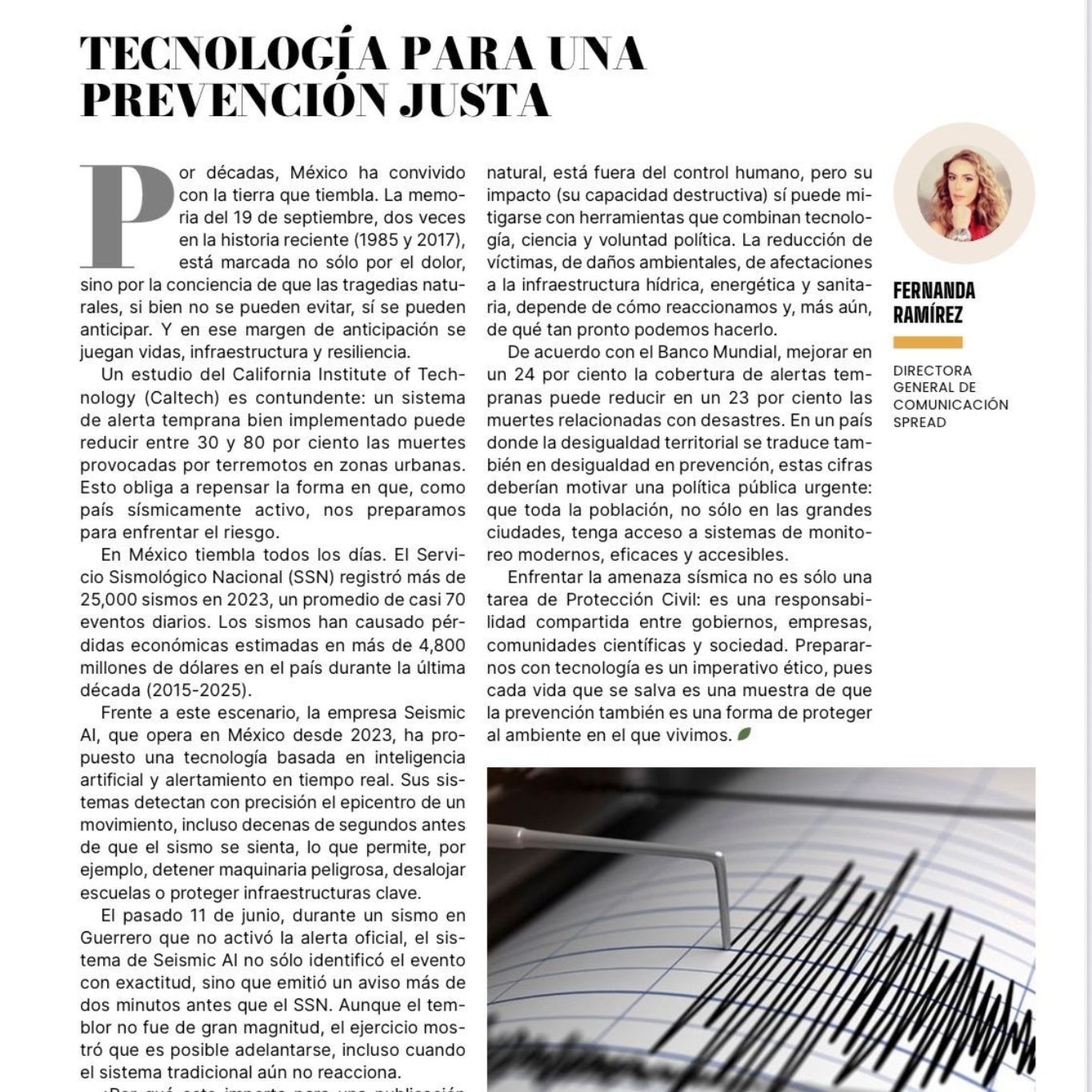Technology for Fair Prevention in Mexico – Article featuring SeismicAI

Technology for Fair Prevention in Mexico
Article by Fernanda Ramirez, General Manager of SPREAD communications (English translation)
For decades, Mexico has lived with a trembling ground. The memory of September 19th, twice in recent history (1985 and 2017), is marked not only by pain but by the awareness that natural tragedies, although unavoidable, can be anticipated.
A study by the California Institute of Technology (Caltech) is conclusive: an early warning system, when implemented, can reduce earthquake-related deaths in urban areas by 30% to 80%. This is something to keep in mind because, as a seismically active country, we must prepare to reduce risk.
In Mexico, the earth shakes every day. The National Seismological Service (SSN) recorded more than 25,000 tremors in 2023, an average of nearly 70 events daily. These tremors have caused estimated economic losses of more than 4.8 billion dollars in the country during the last decade (2015–2025).
In the face of this scenario, SeismicAI company, which has been operating in Mexico since 2023, offers technology based on artificial intelligence and real-time alerts. Their systems precisely detect the epicenter of a movement, even seconds before the violent shaking begins, allowing key measures to be taken, such as stopping dangerous machinery, evacuating buildings, or protecting critical infrastructure.
On June 11, during an earthquake in Guerrero that did not activate the official alert, the SeismicAI system was able to identify the event with exactness, sending a warning two minutes before the SSN. Although the tremor was not of great magnitude, the drill demonstrated how much could be done in advance, even when the traditional system did not yet react.
Why is this important? Because the earthquake, as a natural phenomenon, is beyond human control, but its impact can be mitigated with tools that combine technology and science. Reducing victims, environmental damage, and disruptions to water, energy, and healthcare infrastructure depends on how we respond and, more importantly, how quickly we can do so.
According to the World Bank, improving alert coverage by 24% in a country can reduce deaths related to disasters by 23%. In a country as socially and territorially unequal as Mexico, these figures highlight an urgent need: a fair prevention policy that ensures that the entire population, not only those in big cities, has access to modern, effective, and accessible monitoring systems.
Facing the seismic threat is not just the job of Civil Protection: it is a shared responsibility of governments, businesses, scientific communities, and society. Preparing with technology is an ethical imperative, as each life saved is proof that prevention is also a way of protecting the environment in which we live.
https://www.linkedin.com/posts/activity-7353976717541040129-bv_Y/?utm_source=share&utm_medium=member_desktop&rcm=ACoAAADdbRcBwMcv15EyRlpErYRKeYMAoy_TQzA
